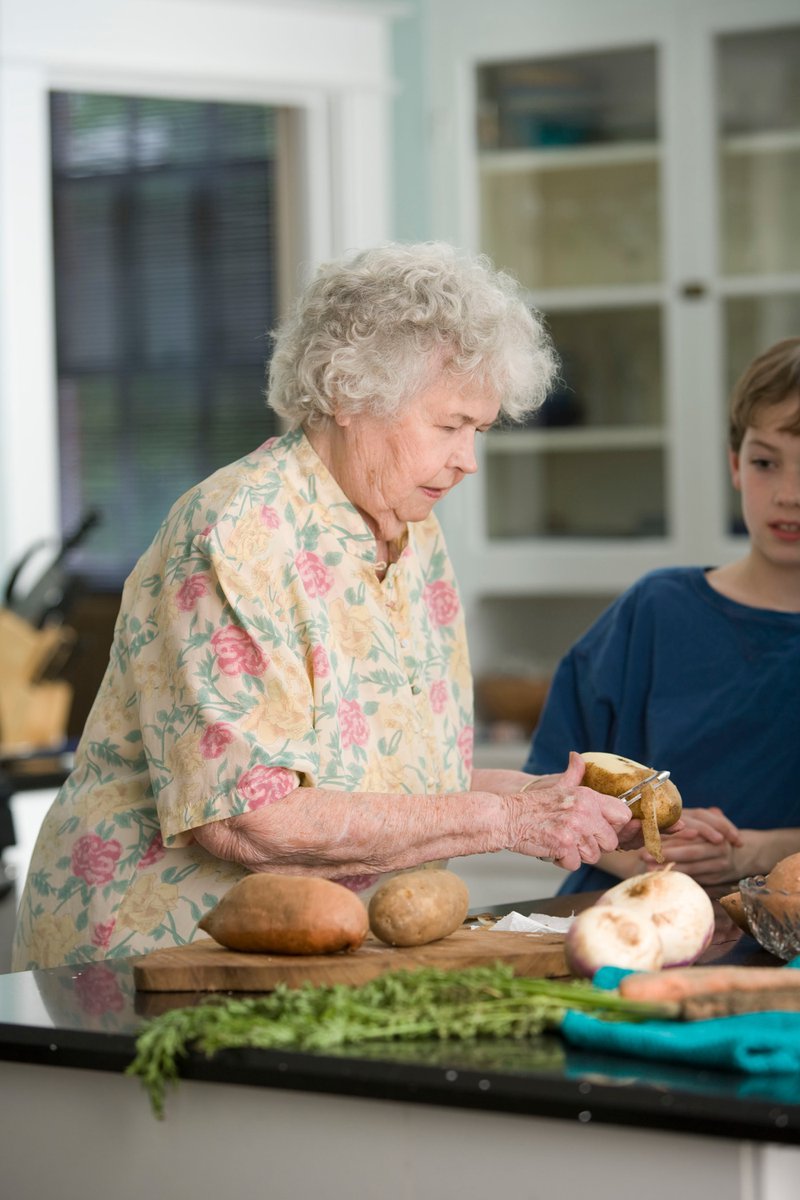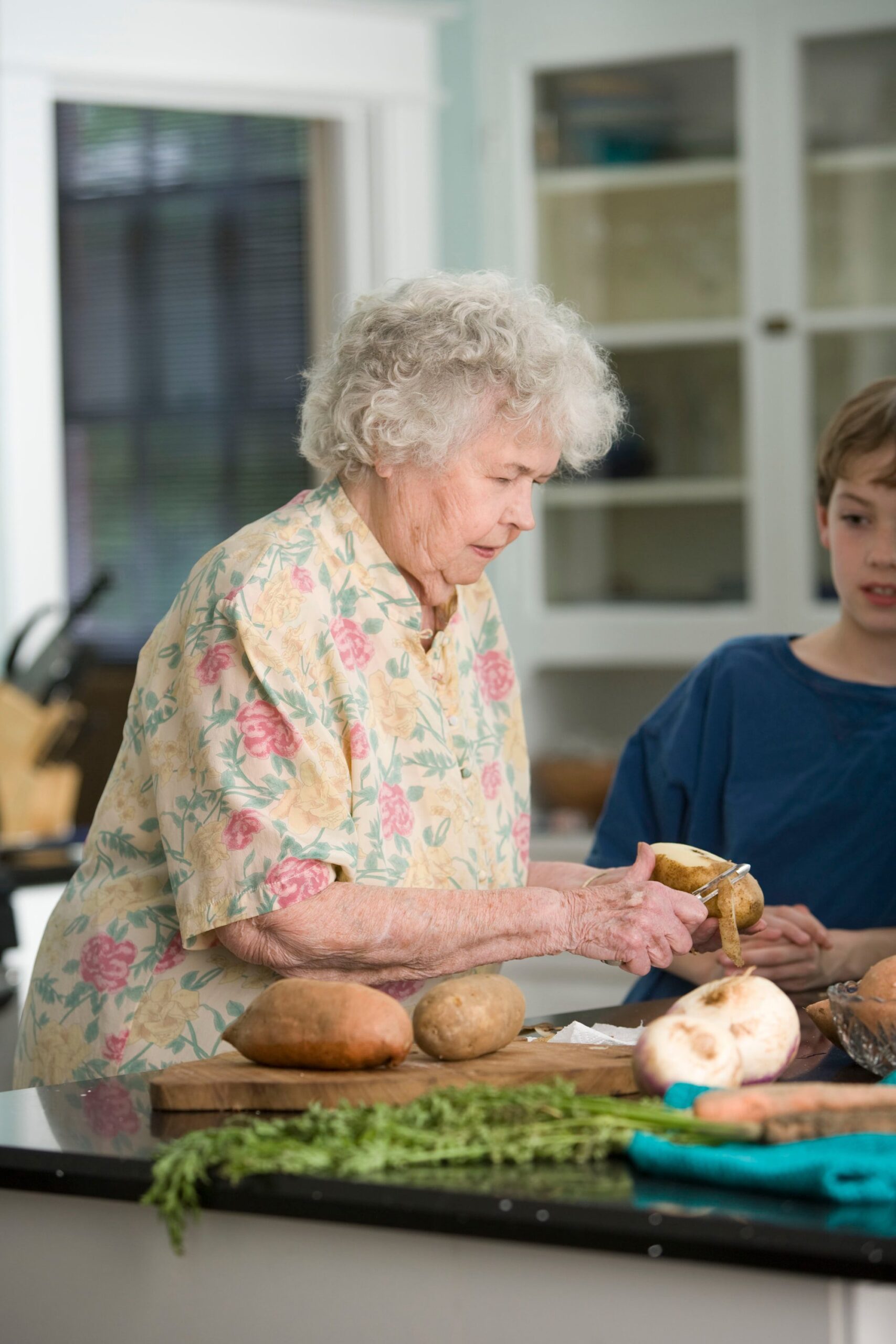Consuming a well-rounded diet is essential for everyone, especially older people. Senior nutrition tips are critical in maintaining vitality and health during the golden years.
Balancing tasty, enjoyable meals with health-conscious choices is key to achieving proper nutrition. This post provides a comprehensive guide on attaining a balanced senior diet.

The Importance of Senior Nutrition
As people age, they are more prone to health issues, changes in appetite, and a slower metabolism, so it is vital that they choose the foods they eat wisely.
Eating nutrient-rich meals provides many benefits to seniors, including
- Increased energy levels. Healthy foods provide the body with sufficient energy to use throughout the day. Extra energy makes you more likely to exercise and helps maintain and control weight.
- Prevents disease. According to the American National Institute of Health, a nutritious diet can reduce the chances of developing anemia, some cancers, and heart disease.
- Helps the body stay strong. A balanced diet gives you all the nutrients you need to keep organs, muscles, and bones healthier.
Nutritional Needs in the Senior Years
When you age, the body needs more of certain nutrients to function optimally. Below are some of the essential nutritional needs of older adults:
Protein
Insufficient protein intake in seniors can lead to osteoporosis and increased muscle loss. In contrast, adequate protein consumption can increase muscle mass and strength and effectively lower the risk of fracture.
Calcium
Not getting enough calcium is highly detrimental for older adults as it can lead to bone fractures, which affect movement and cause chronic pain and stress. It's critical that you have sufficient amounts of calcium in all your meals or use supplements.
Vitamin D
Low vitamin D amounts in the body are associated with metabolic disorders, poor cognitive function, fractures, and cardiovascular disease. Increasing vitamin D consumption from foods like egg yolks and fatty fish is instrumental in defending against these ailments.
Fiber
Fiber plays a significant role in the health of older adults; it prevents constipation, supports digestion, and makes you feel full. In addition, it reduces the risk of diabetes, heart disease, and some cancers.
Challenges in Senior Nutrition
Appetite loss
Loss of appetite is common as people get older, primarily due to changes in hormone levels. For instance, cholecystokinin (CCK) is a hormone that makes you feel full; the body produces more of it when you age. This is why seniors think they are satiated after eating a small amount of food.
Other causes for loss of appetite include a change in taste buds and a reduced sense of smell and taste.
Dental problems
Oral health directly affects eating, and since oral health tends to decline with age, issues like aching gums and teeth can cause discomfort and discourage eating in seniors.
Medical interactions
Some medicines can reduce a person's ability to taste or smell food, reducing the urge to eat.
Practical Tips for Senior Nutrition
Here are senior nutrition tips you can implement that will ensure success:
Start meal planning
Meal planning saves you the time and stress you would have spent thinking about what to eat. To make a proper meal plan, ensure it contains the senior's favorite foods.
Add healthy fats
Prioritize monosaturated fats, also called "healthy fats," which keep your brain and heart healthy and provide energy. Foods like nuts, avocados, and fatty fish are ideal sources of healthy fats.
Vary protein sources
Go for lean meats like poultry and legumes such as peas and beans. Vegetarian protein sources are preferable as they offer nutrients without the extra fats.
Eat fruits and vegetables.
Fruits and vegetables contain minimal calories and are full of nutrients. Pick pre-sliced vegetables to avoid the trouble of cutting.
Switch to whole grains.
Whole grains provide fiber, which is essential in supporting digestion. You can look for whole-grain varieties of cereal, pasta, and more.
Balancing Health and Taste
There are numerous ways to make healthy and delicious senior meals more appealing. They include
Trying out fresh herbs and exotic spices
Constantly using the same seasonings can make your food boring. Switch it up by buying new, less common herbs and spices. For instance, curry powder can give a lot of flavor and depth to stews, soups, and roasted veggies.
Herbs like fresh cilantro, rosemary, and parsley can also provide extra flavoring to a vegetable soup and make it more aromatic.
Using your best tableware
An attractive plate will make a senior want to eat more, so serve meals in beautiful crockery if possible.
Adding plenty of colors
To make meals appealing, add a variety of colors. You can achieve this using different types of vegetables.
Special Dietary Considerations
For seniors with certain health conditions, such as heart disease and diabetes, their meals must contain minimal amounts of
- trans and saturated fats
- sugar like candy, cakes, or ice cream
- packaged foods.
Some healthier options you can go for are
- Plant proteins—lentils, peas, black beans
- Fruits—pears, peaches, plums, cherries.
If an older adult has food allergies, list them and find replacements to provide equivalent nutrition.
Hydration and Fluid Intake
Proper hydration is vital for older people as it ensures adequate kidney function, supports digestion, maintains blood volume, and prevents mental confusion.
It is recommended that seniors drink at least 200ml of water a day to avoid dehydration.
To ensure a senior drinks sufficient amounts of water daily, you should
- Place a bottle of water close to them
- Set daily targets and break them down so they do not find it overwhelming
- Record every time the senior drinks water and provide a reward.
Mealtime Enjoyment and Social Connection
Eating alone often makes you eat less healthy foods to satisfy your cravings. However, eating with friends and family makes it difficult to indulge in harmful vices.
Numerous reports indicate that sharing a meal can make you feel happy, foster a sense of belonging, and prevent depression and anxiety. It's an opportunity to build stronger bonds with people around you.
If you live alone, consider inviting friends and family for regular meals to experience and enjoy the social connection.
Community Resources and Support
The East Arkansas Area Agency on Aging (E4A) provides various services to ensure seniors have a nutritious diet. These services include
- Meals on Wheels—seniors get meals delivered to their doorstep every day of the week.
- Nutrition counseling—get expert advice on making meal plans, preparing food, the best ways to balance taste and health, plus more senior nutrition tips.
Conclusion
Senior nutrition can be both health-conscious and delicious. All you need to do is add new herbs and spices, create a varied meal plan, and include sufficient amounts of water.
Avoid the risk of getting off-track by sharing meals with friends and family or seeking support from your local community resources. Remember, balanced nutrition plays a significant role in ensuring we all age well.
Call to Action
To get personalized assistance on achieving a tasty and healthy senior diet, visit the East Arkansas Area Agency on Aging website. Along with a nutrition guide for seniors, you will also get practical tips on caring for older adults and resources available for East Arkansas.



